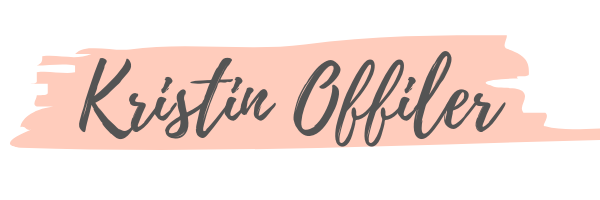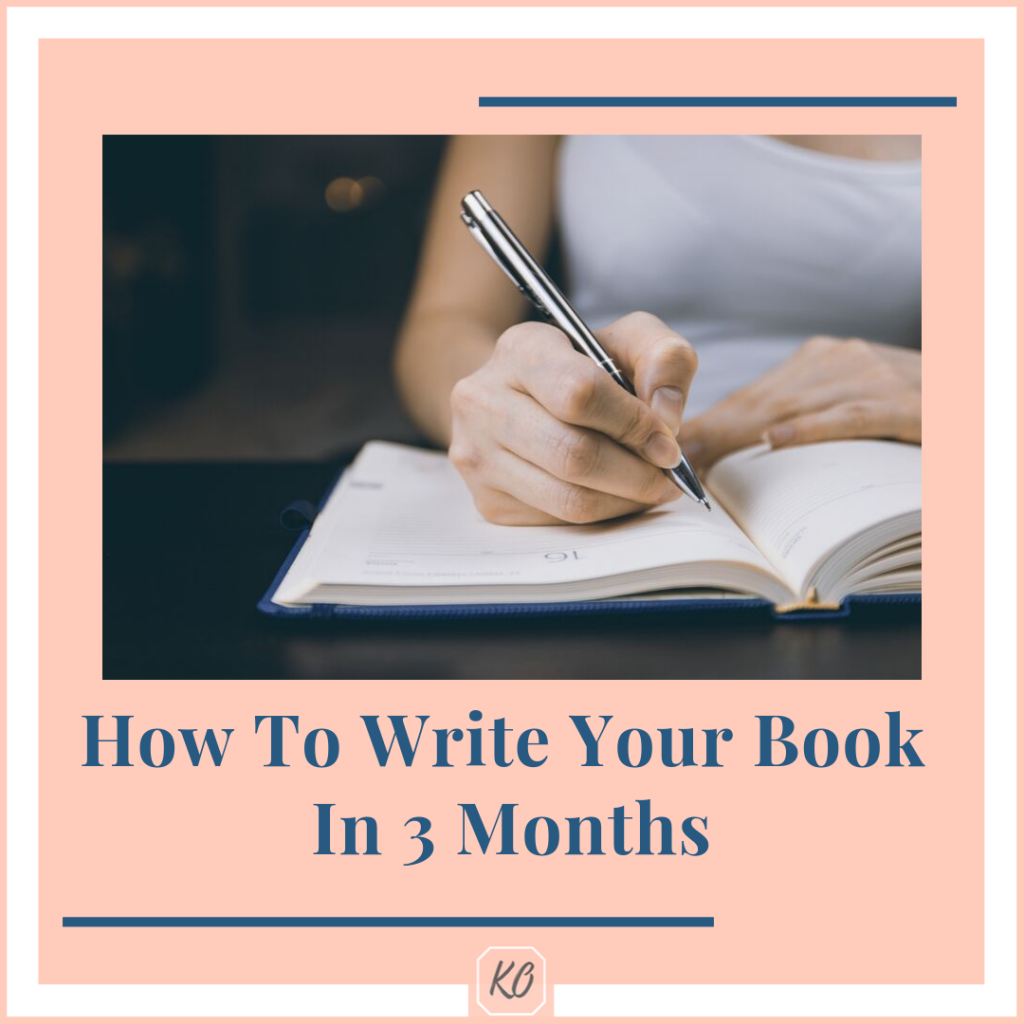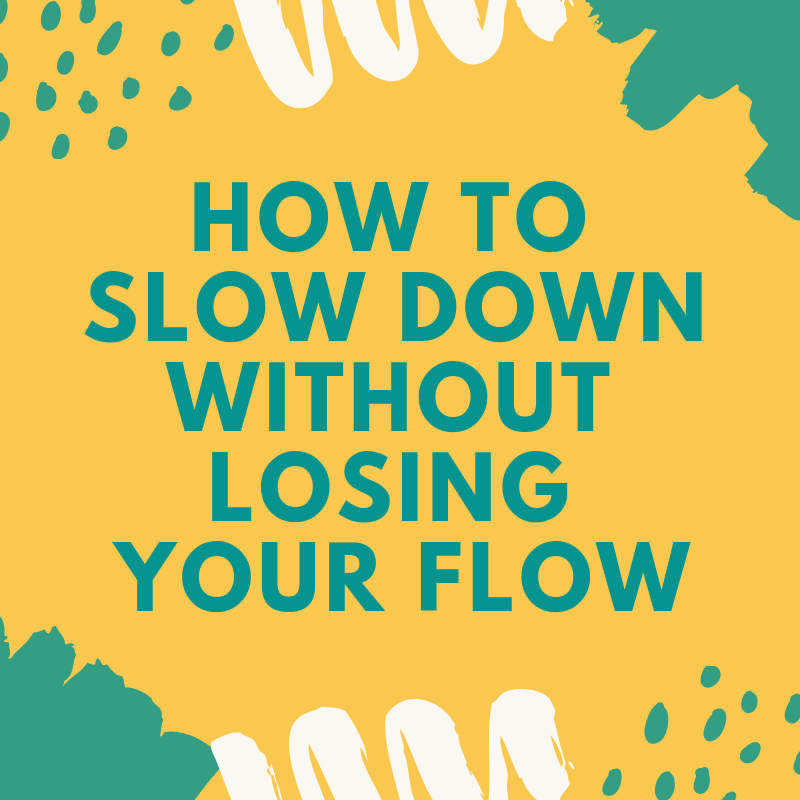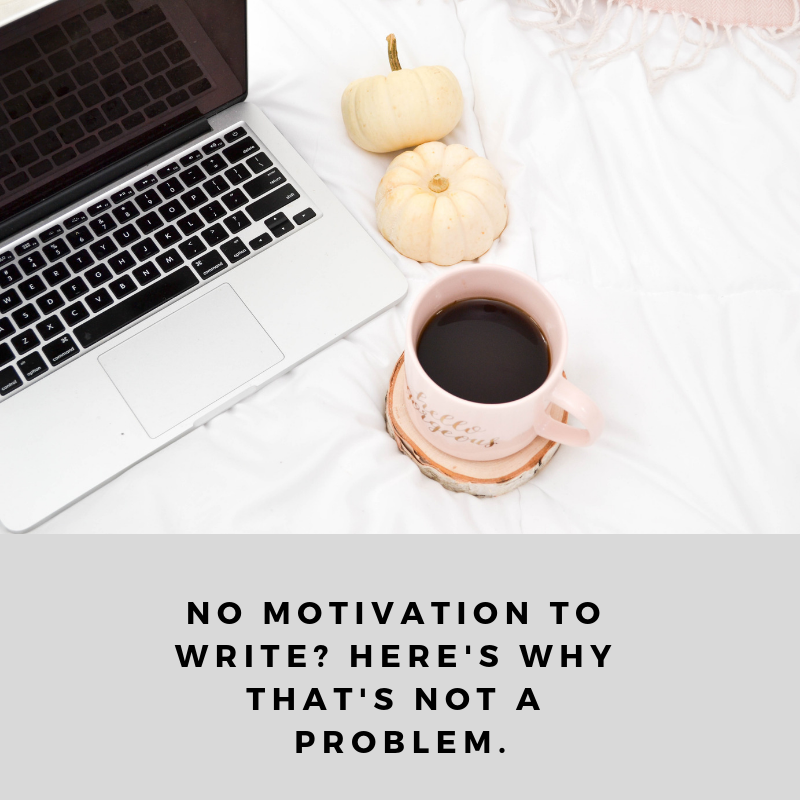I’m writing this on October 1st, which means this is officially the start of the last three months of 2019.
It’s also the last three months of this decade. Let that marinate for a second.
Pretty soon it’ll be 2020, and some of us will be looking back and wondering how we let another year pass without starting/finishing our book.
You can either shame yourself for what you haven’t done, or you can look ahead and make a plan.
Because of National Novel Writing Month in November, many writers associate this time of year with marathon book-writing. I haven’t participated in NaNoWriMo in a few years, but I’ve done it enough times to understand what it is about it that works.
It creates a container with clear boundaries in which you can put your writing for a set amount of time. Some people just work better this way.
It’s comforting to know you just have to push yourself for a certain number of days, then you’ll have a completed draft.
It also works because when there’s a deadline to meet, you have less time for procrastination, overthinking, or resistance.
The amount of time is arbitrary, of course. But if you’re one of those people who love a deadline and some structure around project timelines, this is for you.
Plan!
This doesn’t mean outline, but it can. If you hate outlines, don’t even bother.
But what I would recommend is doing some light planning so you have mini-deadlines within your larger-scale deadline.
NaNoWriMo helps people write 50,000 words in a month, but here’s the truth: if you want to ultimately try and sell your book, 50,000 words is generally not long enough.
It would serve you well to do some research on comparable books in your genre so you understand, in general, how long they tend to be.
For me, the sweet spot is anywhere between 85,000-95,000 words. Anything more and agents might balk at the length. Anything shorter and it might feel more like a novella, which can be harder to sell.
Once you have your ideal word count figured out, break it down across three months. Will you write daily? A few days a week? Or have marathon writing sessions on weekends?
Give yourself markers to hit over the next three months, such as a monthly word count goal, a weekly word count goal, and a daily word count goal.
This isn’t writing prison, though. You can always change course if you need to! And the world won’t implode if you miss a deadline.
Make It Public!
Recruit some accountability to keep you going. That’s part of what makes NaNoWriMo so appealing and successful.
A lot of writers will share that they’re doing NaNo with their networks, and you can even see a writer’s progress on a little graph in their NaNo profile. Sometimes knowing that other people can see your progress is enough to keep you writing!
If you have writer friends, as them to check in with you every week to see your progress. You can also post regular updates on social media or create a new account entirely for tracking your writing life.
Just don’t get too distracted by the accountability part. If you’re spending more time sharing about your writing than actually writing, you won’t get very far!
Just Freaking Write!
This is the secret to writing a book. Just freaking write!
Ok, I know this oversimplifies the entire creative process of writing a book, but if you overthink it to the point of not writing… you won’t write.
Sometimes the best course of action if to actually take some action. Put pen to paper or fingers to keys and go. GO! Write write write.
If this scares you, it might be time for some perspective. Sorry if this feels harsh! It comes from a place of love, I promise.
First, the act of writing isn’t hard. Ideas aren’t limited. There are millions of things each day you could write about. The act of writing, of putting words on the page, is simple. You just… do it.
What feels scary or hard is the mental chatter around writing.
I’m not good enough. My writing is terrible. Who am I to write this? I have no idea what I’m doing. I suck at this. I don’t even know how to structure a story. What even is plot? This character is boring. My story is boring. No one will ever want to read this. I shouldn’t even bother. This is so bad it’s embarrassing. What if my mother reads this? What if no one ever wants to publish me? What if I try this and fail miserably? I’ll die of embarrassment.
There are elements of writing you can learn. Do you know how many writing books exist in the world?! I mean, if not, just ask me. I’ll send you a picture of a bunch of them on my shelf right now.
There are also blogs, videos, courses, masters programs all dedicated to teaching you about the craft of writing. You can learn anything you don’t yet know how to do well.
Everything you write can also be edited. Nothing is forever unless it’s going to print today. And even then, books can be published in multiple editions, right? So what are you scared of?
What you’re writing is a first draft (or maybe a second or third, depending on how you’re using this time).
My point is that every word you write can be changed. EVERY WORD! The whole thing can be scrapped and rewritten. You can fix plot holes, flat characters, or any other number of things you’re worried about in revision.
You don’t have to be afraid of not writing the perfect draft. All you have to do is write it, then you can fix it later.
Listen. If you want to write… just write.
It’s as simple as that. If it’s agony for you to not write, you must find a way to do it. If you’re a writer at your core, you know this to be true.
If not writing is genuinely no big deal to you, congratulations! You can exist without this particular creative pursuit in your life on a regular basis. It can be a hobby you dip in and out of throughout your life. That’s great, too!
But if you want to write a book and you want to do it over the next three months, it’s not only possible, it’s completely within your ability, too.
There’s beauty in writing a draft of something quickly, without lingering over your doubts or questioning your artistic choices.
Writing quickly allows you to open the tap of your creativity and let it flow without questioning what you’re doing.
Pour it all out. Why not? Don’t hold back any of it. Pour it all out quickly and with confidence. Forget perfection and self-doubt. Just write it. Let Future You decide what needs to be done to this draft.
Will you start today and write your book by the time 2020 greets us? Leave me a comment and let me know!
Writing myths can feel like solid kernels of advice, but when you examine them closely, you start to see how wrong they are.
Maybe you don’t even know where these myths originated from! Sometimes they’re things we hear other writers say. Other times, they’re just false beliefs we assume to be true.
Today I’m sharing seven writing myths you can stop believing today. Hopefully, by doing so, you’ll open up more space in your life and mind for your writing.
Myth Number One: You have to get an education to be a real writer
You don’t need an MFA to write a novel. You don’t need to have a degree in English to speak intelligently about literature. And you don’t have to take online writing classes to get better at writing.
You certainly can (hello, I have!), but none of that is necessary. Plenty of talented writers have made a name for themselves without formal education or a degree in a particular writerly field.
The simplest way to learn about writing is to be a voracious reader. Read everything you can get your hands on and you’ll absorb the ins and outs of story and language.
Myth Number Two: Writers must struggle with their art for it to be meaningful
The idea of the struggling writer is a bit of a romantic one. It’s almost as if we believe art isn’t deep or meaningful or honest if the writer comes by their art easily or if they get paid for their work.
So not true. You can write without it becoming emotionally fraught. You can write while holding down a job with health benefits so you can keep your family fed, clothed, and housed. You’re also allowed to earn money from your writing, too. There’s nothing wrong with cashing in on your skill and talent.
Mostly, though, I want you to remember that writing doesn’t have to be a struggle. If it feels that way, maybe it’s time for a new approach. I can help you with that!
Myth Number Three: I have to know what I’m writing before I start
I hear this a lot from writers that I work with. Many writers believe they can’t start writing something until they know exactly what it is they’re trying to say.
The reality is that you may not know the core of your story until you do some writing in the first place. It’s a kind of chicken or egg situation. You don’t have to know everything before you start to write, and you probably won’t know most of it until after a draft is written. If you did, you’d probably get bored and quit before long anyway.
Let yourself be surprised as you write. What’s the harm in that?
Myth Number Four: I need large blocks of time to write
I used to believe this so fiercely that I hardly ever wrote at all. Unless you’re committed to getting up early, staying up late, or sacrificing any kind of social activity, most people simply do not have large blocks of time regularly for writing.
Once in a while? Sure! When I was working on my first book, I had a full-time job during the week and loved my weekend afternoon writing sessions at the coffee shop. I’d happily churn out thousands of words in a two- or three-hour window.
But in general, I wrote that book in small chunks of time on a much more regular basis. As soon as I started to see that I could get meaningful writing done in smaller periods of time, everything changed.
This myth only serves to limit you. By believing you don’t have enough time to write, you’re only making it impossible to write at all. If you change your mindset and allow your writing to happen in the time you do have during the day, you’ll get much more writing done than if you waited for the one day a month when you do have “enough” time.
If you write for ten minutes a day all week long, you’ll have done over an hour of writing by week’s end.
Also? I’ve found that I write more and better when I have less time. Instead of stalling or worrying about where to start, I’m forced to jump right in and get going.
That’s how I got my second book written. Baby nap times are unpredictable, so the moment I got to my computer I wrote. I simply didn’t have the opportunity to procrastinate or overthink.
Myth Number Five: If I don’t write daily, I’m not a writer
Do you still believe this one?
I mean, really? Do you believe in your heart that your writing is invalidated if you aren’t tending to it every single day?
Being a writer is more than writing daily. Anyone can write daily. But if you’re a writer, the meat of your process lives beyond the writing. Writing consistently is important, yes, but so is reading, thinking, revising, having experiences that fuel your storytelling, talking about writing with other writers, getting feedback on your work, and giving it to others.
All these things grow your writing life.
Yes, write as often as you possibly can because that is how you build a practice, find your voice, and figure out what your story is. Keep a grip on your writing like you’re holding the string of a kite. It’s so hard to grasp it again once you let too much slack go.
But don’t pretend that it’s all or nothing. Don’t diminish your work because you don’t write as often as you “should.” Maybe you’re doing other important work in that in-between time.
Myth Number Six: No one will want to read what I’m writing
I can distinctly remember the moment when, midway through writing my first novel, I stopped and thought everything I had written was so boring there was no way anyone else on the planet would ever want to read it.
Of course, it turned out to be untrue. It wasn’t the last time I’d have that thought, though.
This is a myth that so many of us come up against again and again. I think it tends to strike around the middle of a project when the shine of writing something new has worn off and we’re faced with yet another day of staring at our own words.
Maybe it’s a form of resistance trying to stop us before we reach the end so we won’t have to face the horror of our work being disliked. Who knows?
Whatever the case, it’s not your problem if anyone wants to read your work. That’s not something you can control. What you can control is the quality of your writing, the story you’re telling, and the effort you put into making it as good as you can.
Myth Seven: I don’t know what I’m doing
That’s ok. No one does!
Even the most prolific, talented, genius writers have moments like this, so don’t let it be a reason you never start, or worse, stop before you finish something.
From a craft perspective, you can learn and practice just about anything. Need to work on dialogue? How are characters built? What’s the deal with structure? You can learn! If you don’t want to pay for a class, there are countless books, websites, and free videos online to help you out.
But there’s also a mystery to writing that no one can explain. It’s ok if you feel like there’s more to know about writing than you could ever learn. Some of it is unknowable. You just feel your way through it.
So learn what you can and surrender the rest. It’s a myth to believe that you’ll ever fully know what you’re doing when it comes to writing.
Tell me one writing myth you’re ready to give up in the comments below!
I tend to finish big writing projects in December even though I don’t plan it that way.
In 2015, I finished the first draft of my novel fifteen months after I started it. The next year, December 2016, I finished a big revision of that manuscript. And in December of 2017, the same thing. Another book overhaul under my belt. This wasn’t on purpose, though!
I’ve found that writing, like life, comes in seasons.
This time of year always feels like a very particular writing season to me. Maybe it’s the dwindling number of daylight hours or the fact that so much energy goes towards the holidays, but December usually feels like a winding down in my writing life.
As the year ends, I finish lingering projects and let them marinate, or start playing with smaller pieces to see what they might want to be. It’s a low-pressure, low-stakes time.
I don’t usually begin major revisions or start new, longer projects in early winter.
If you’re like me and you slow down a bit in December, I have some thoughts on how you can do that without losing your writing flow completely.
Because it IS possible. You can slow down and still sustain your writing life, even if all you want to do is hibernate until May.
Here’s a scenario you might be familiar with: you want to write, you have every intention to sit down and write…but the motivation just isn’t there. So, you don’t write.
I understand that completely.
Motivation feels good. The forward momentum sparked from feeling inspired can’t be topped. It’s such a high, right?
But here’s the thing. Motivation is fleeting. It’s fickle. It’s like that flaky friend who makes you feel great when you’re together but doesn’t show up for the plans you both agreed to a week ago.
Motivation won’t even call to tell you it’s not coming. It’ll let you sit there, alone, to figure out for yourself that you’ve been stood up.
Basically? Motivation cannot be trusted.
That’s ok, though. Feeling unmotivated to write isn’t a problem, and it doesn’t have to stop you from being productive, either.
Today I’m going to share with you my favorite trick for writing consistently whether you’re feeling motivated to write or not.




